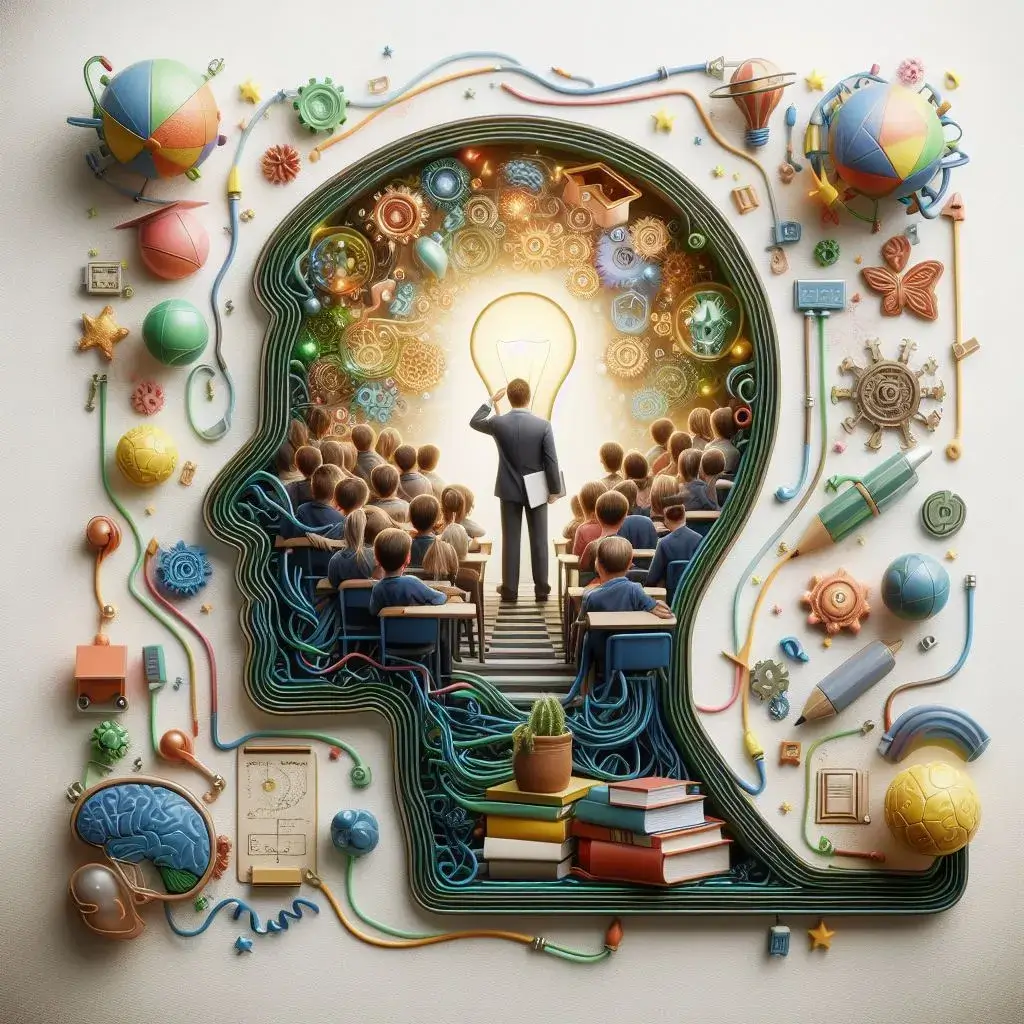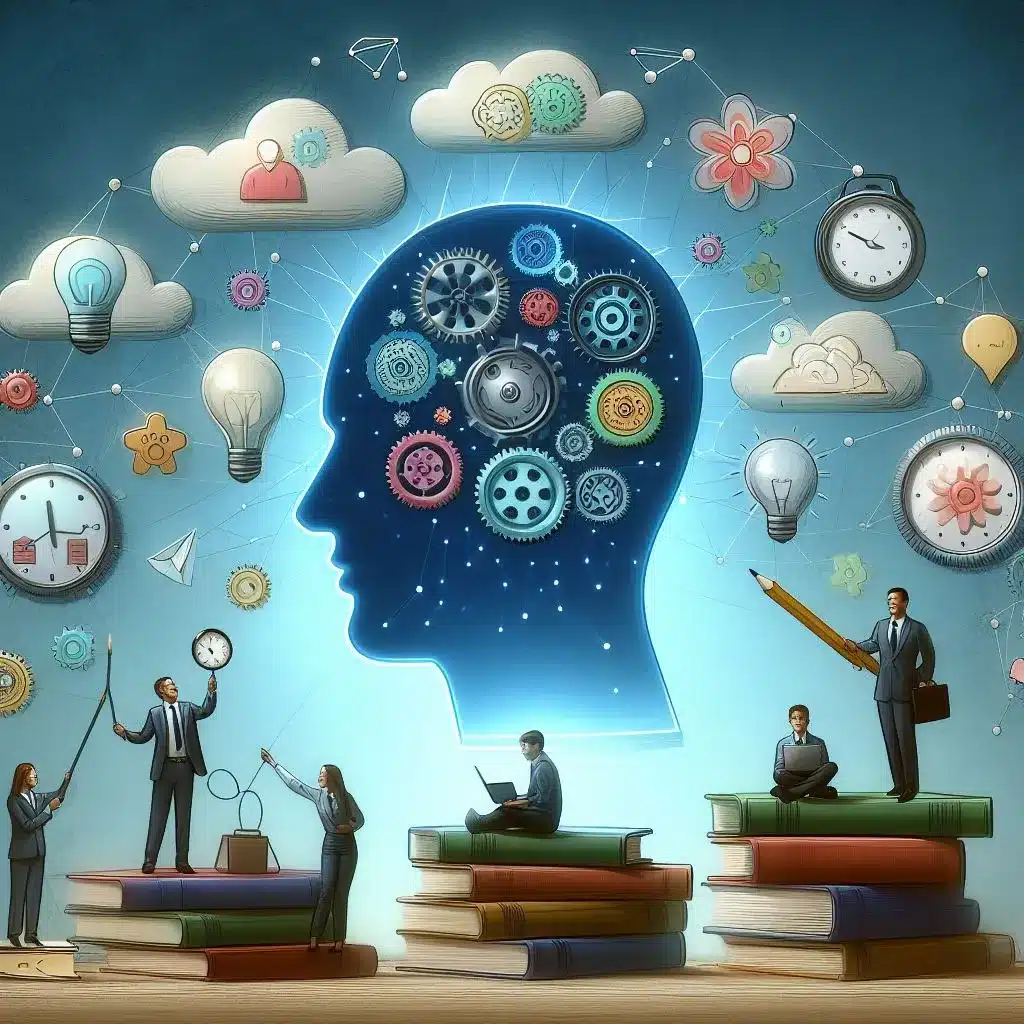Learning is like a superpower that helps you feel good about yourself. When you gain knowledge, it’s not just about books and classes. It’s like discovering what you’re good at and realizing you can do cool things.
Think of education as a guide that shows you the way in life. It gives you the power to believe in yourself, not because you’re better than others, but because you know what you’re capable of. This belief, when supported by education, becomes the base of strong self-esteem.
Learning also teaches you to keep going, even when things get tough. It’s like saying, “I might face problems, but I can handle them.” Through the ups and downs of school or college, you learn that you can overcome challenges. This builds a feeling of confidence in your own abilities.
I’ve seen this happen in my own school days. Being part of a group, sharing ideas, and hearing different opinions have shaped how I see myself. Education is not just about facts; it’s about becoming a better person.
The Impact of Education on Self-Esteem
Does getting an education impact how you feel about yourself? Many studies point to strong connections between academic achievement and self-esteem. Students who do well in school tend to have higher self-confidence than those who struggle academically. Think about it – when you pass a test with flying colors or earn an “A” on a paper, doesn’t it give you a feeling of pride and competence? Success in educational settings seems to directly boost our self-esteem.
On the other hand, experiencing difficulties can have negative effects. Struggling to understand class material or get poor grades is frustrating and denting to self-perception. It’s easy to feel insecure or doubtful of our abilities when we’re not finding academic success. These challenges can leave students less sure of themselves and their capabilities. Over time, ongoing struggles may cause some to question their intelligence or place doubts about their potential. For better or worse, how we perform and feel about our education appears closely tied to self-esteem. Succeeding builds it up while facing troubles tends to bring it down.
The Link Between Education and Self-Esteem

There’s a clear connection between education and self-esteem, wouldn’t you say? Think about your own experiences in school. Were there days when you felt really good about yourself after acing a big test? I know for me, doing well on assignments always gave me a confidence boost that lasted awhile.
On the other hand, what about times when school felt more like a struggle? Maybe you had trouble with certain subjects or always felt behind your classmates. I’d bet those moments probably brought your self-esteem down a little, right? We’ve all been there – it’s natural to doubt ourselves when we aren’t finding as much success. But you know what they say – whatever doesn’t kill you makes you stronger! Struggles in school can build character too, even if they’re tough in the moment.
It really gets you thinking about just how deeply education impacts the way we see ourselves. Have you noticed these connections in your own life too? Feel free to share – I’d love to hear if my experiences match up with yours or not. In any case, it’s clear there’s a lot more tying ourselves to our education than just academics. How we feel when we’re doing well or poorly in school can really say a lot about our self-esteem as a whole.
How to Use Education to Build Self-Esteem
Now that we understand the importance of education in establishing self-esteem, let’s explore some practical ways in which you can use education to boost your self-esteem:
Set Realistic Goals
Setting realistic goals is an essential aspect of building self-esteem. When individuals set achievable goals and work towards them, it can boost their confidence and self-worth. Education provides individuals with the necessary skills and knowledge to set and achieve their goals. By setting realistic goals, individuals can see their progress and feel a sense of accomplishment, which can have a positive impact on their self-esteem.
Embrace Continuous Learning

Education is a lifelong process, and individuals should embrace continuous learning to build their self-esteem. By continuously learning and acquiring new skills, individuals can boost their confidence and self-worth. This can also open up new opportunities for personal and professional growth, which can have a positive impact on an individual’s self-esteem.
Seek Support and Guidance
Education is not just about individual effort; it also involves seeking support and guidance from others. Individuals should not hesitate to seek help from teachers, mentors, or peers when facing challenges. By seeking support, individuals can learn from others and build a strong support system, which can have a positive impact on their self-esteem.
Celebrate Achievements
Finally, individuals should celebrate their achievements, no matter how small they may seem. By acknowledging their successes, individuals can boost their self-confidence and self-worth. This can also motivate them to continue learning and growing, which can have a positive impact on their self-esteem in the long run.
Conclusion
In conclusion, the way we learn things is very important for feeling good about ourselves. Education helps people feel stronger, learn who they are, believe in themselves more, and deal with problems. The connection between education and self-esteem goes both ways – learning can help build confidence, and people who already feel good about themselves do better in school. By picking goals you can reach, always trying to learn more, asking others for help, and being proud of your success, a person can use education to feel better about who they are and live a happy, meaningful life.


